HBL carves a legacy in banking solutions
HBL offers easy digital solutions and builds a greener planet for future generations
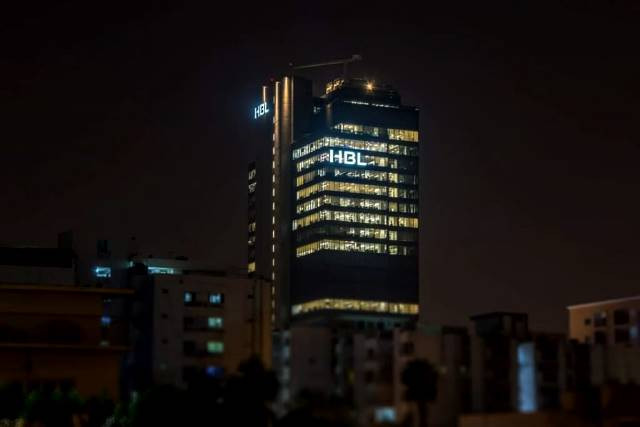
One of the main agendas of the United Nations Environment Programme (UNEP) discussed at the United Nations General Assembly 2019 was in regards to ‘Responsible Banking’. This year, one Pakistani bank truly made us proud by representing the nation at the UN. Habib Bank Limited being the pioneer in green financing and solar energy projects, spearheaded the financial inclusion agenda of Pakistan at the UN. It has been working towards developing sustainable economies by introducing digital solutions, creating transparent products and services, that create value for their customers, clients, investors, as well as society.
Let’s take a glance as to how HBL embarked on a journey to efficaciously position itself as Pakistan’s premier bank.
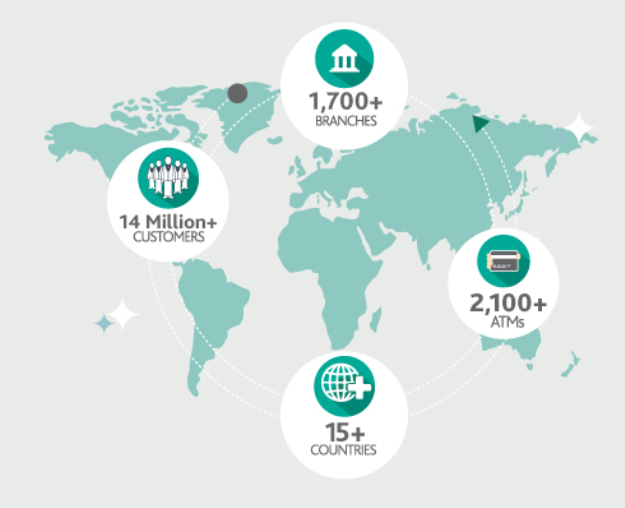 With over 14 million contented customers countrywide and beyond, HBL is known to be the very first commercial bank that started its operations in Pakistan. This Pakistani origin bank was founded in 1941 and to date, has been helping the Pakistan’s economy flourish. Since then, the brand has been ‘an enabler of dreams’ and has supported many individuals as well as businesses in a responsible and sustainable way.
With over 14 million contented customers countrywide and beyond, HBL is known to be the very first commercial bank that started its operations in Pakistan. This Pakistani origin bank was founded in 1941 and to date, has been helping the Pakistan’s economy flourish. Since then, the brand has been ‘an enabler of dreams’ and has supported many individuals as well as businesses in a responsible and sustainable way.
However, HBL, over the years, understood that around 100 million adults in Pakistan don’t have access to formal and regulated financial services. Banking channels and access points are concentrated around the top 15 urban centers with the majority of banking customers coming from these urban centres as well. Alongside this, according to Global Findex report 2017 for Pakistan, bank account ownership has surged among men and stagnated among women, bringing the gender gap in account ownership to 30%.
In order to tackle this problem, the State Bank of Pakistan launched its financial Inclusion strategy in May 2015. This strategy aimed to expand financial access to at least 50% of adults including women by 2020. HBL studied the scenario and concluded that the case for financial inclusion barely stood a chance, when big segments of the society were intimidated by banks.
The majority of unbanked people’s aversion to banking is a social class/gender bias issue, and in their minds, banking, is part of living a certain way, which they could only dream of. The real challenge was to make the unbanked population feel respected, included and comfortable with the idea of engaging with a bank.
Understanding the needs of the people, HBL has been working on designing solutions that directly address banking concerns. HBL has fairly covered the accessibility part of the challenge with its wide network of branches throughout the country. Moreover, it has been imparting relevant knowledge and skills to their servicing staff in order to make the consumer experience less intimidating. HBL also launched several initiatives to bring more people into the banking fold in a way that they would feel heard, valued and welcomed.
In order to enable the dreams of women, HBL came up with a banking platform dedicated solely to them. HBL Nisa provides over 2 million women account holders the choice of being financially independent. It strongly believes that every woman has the right to choose, and the right to make her own financial decisions. All she requires is a place where her needs can be understood.
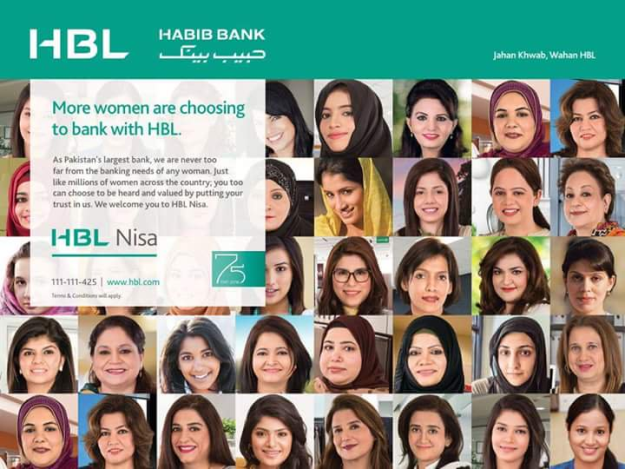
HBL being the largest financial institution in Pakistan took it upon them to do their part in boosting the economy by launching their branchless banking service. It enabled customers to ‘Konnect’ and conduct transactions from the comfort of their homes/office or on the go by simply using an app on their phones. Launched in 2018, Konnect is a branchless banking product which allows people to open an account without having to walk into a branch or submitting any documents other than a CNIC.
Besides contributing to the economic growth and making Pakistan a financially progressive country, HBL has also managed to carve a footprint in renewable/green projects. Under its green initiative, HBL has undertaken several power projects under various capacities valuing over $12 billion in both public and private sectors.
HBL acted as a Joint Lead Advisor and Arranger in Hydel projects led by WAPDA. The 84MW project, Laraib Energy has the distinction of being Pakistan’s first hydro-power registered with the United Nations Framework Convention as Clean Development Mechanism Project. HBL has also been on the forefront of undertaking wind projects which taps into natural resources and lowers Pakistan’s reliance on imported fuel. It also acted in the capacity of Joint Lead Advisor and Arranger for 49.5MW Fauji Wind Power Project which is Pakistan’s first ever wind IPP and arranged equivalent $110 million for the project.
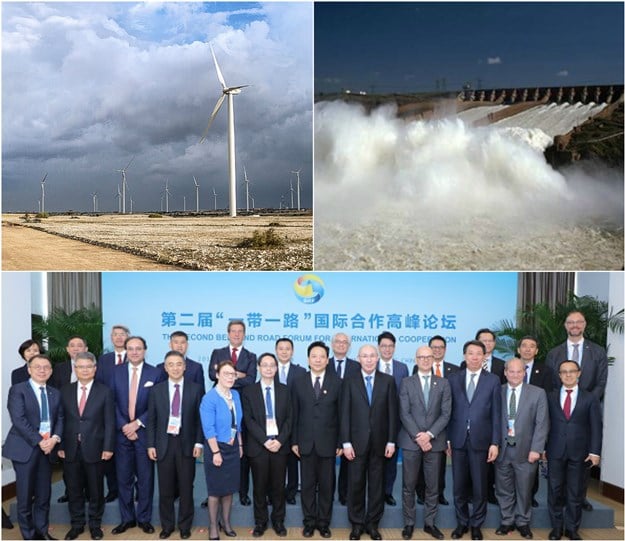
Some of their applaud-able achievements
- HBL was awarded the first PBA - Best ESG Bank in 2016
- HBL has won a plethora of awards from prestigious institutions such as Euromoney and The Asset, in recognition of its initiative in undertaking green and renewable projects
- One of their non-power related projects include an integrated water management system for Gul Ahmed Pakistan
- HBL is one of the most active banks to utilise SBP’s renewable energy refinance facility on Solar PV financing. It has also collaborated with GIZ, Frankfurt Business School and German Solar Association, and together they are aiming to substantially scale up the Solar PV market
- HBL is the only Pakistani bank to become a member and a signatory to the Green Investment Principles (GIP) established by the China Green Finance Committee and the City of London Green Finance Initiative that promotes green investment in the Belt & Road region
- HBL played an important role in helping SECMC Thar Coal in developing their ESG plan which pivots on Environmental and Social aspects including the Resettlement Village spread over 250 acres of land, including all basic amenities of housing, clean drinking water, education, health and vocational training to capacity building the locals for employment in a socially inclusive environment. Gender balance, employment of the female population as truck drivers and the Thar Million Tree Project are an example in itself






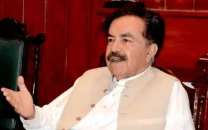













COMMENTS
Comments are moderated and generally will be posted if they are on-topic and not abusive.
For more information, please see our Comments FAQ